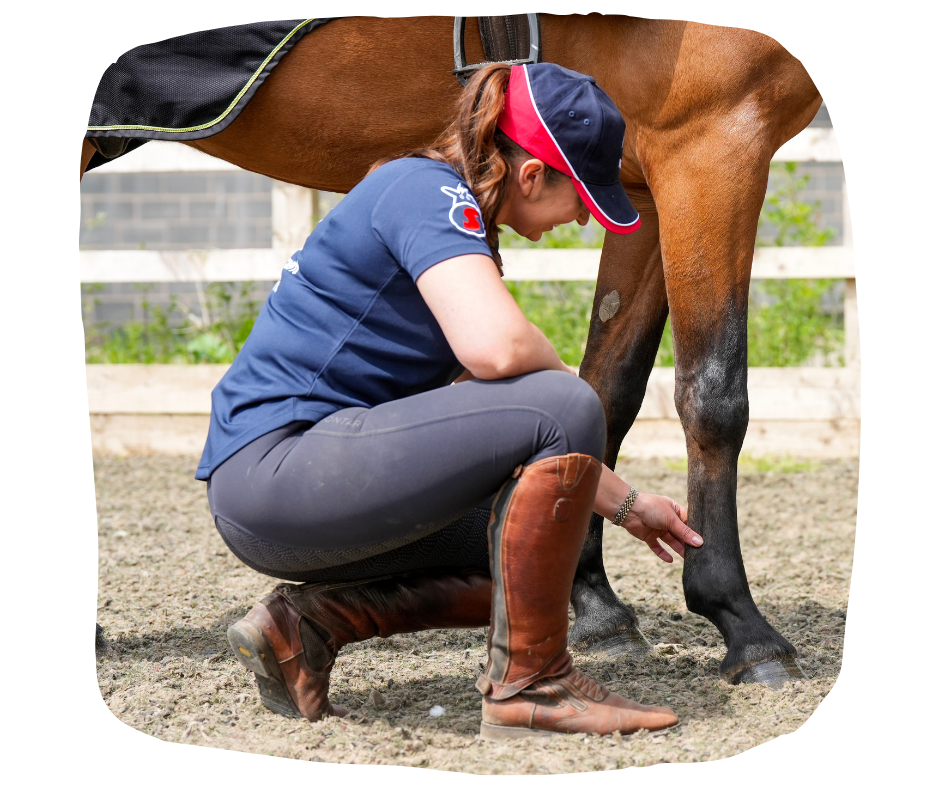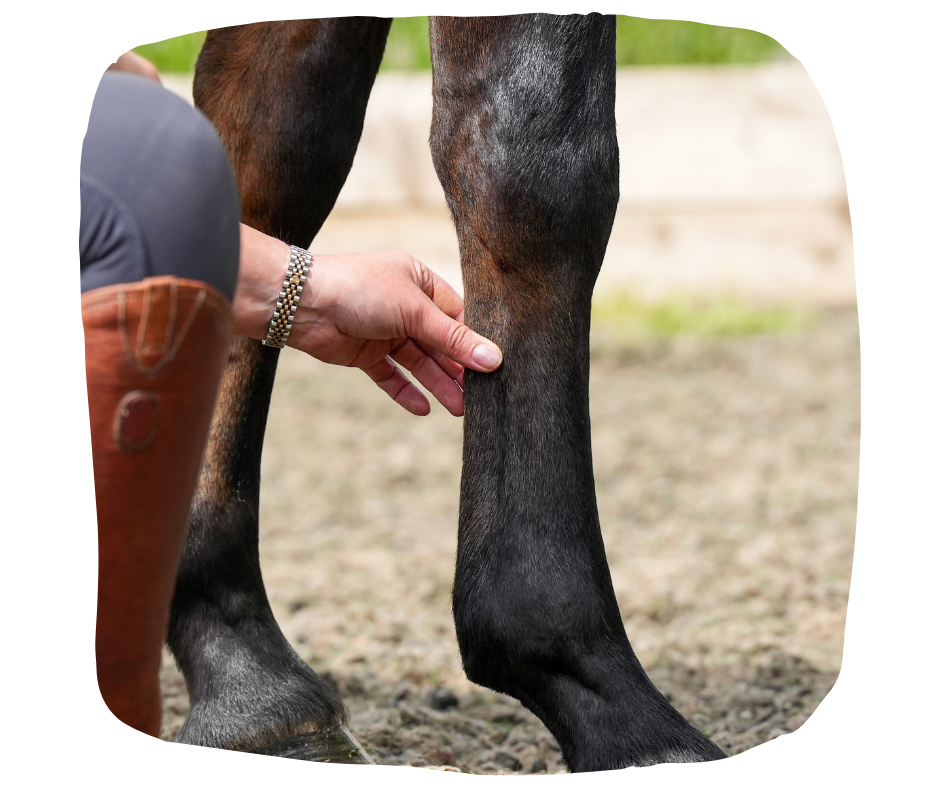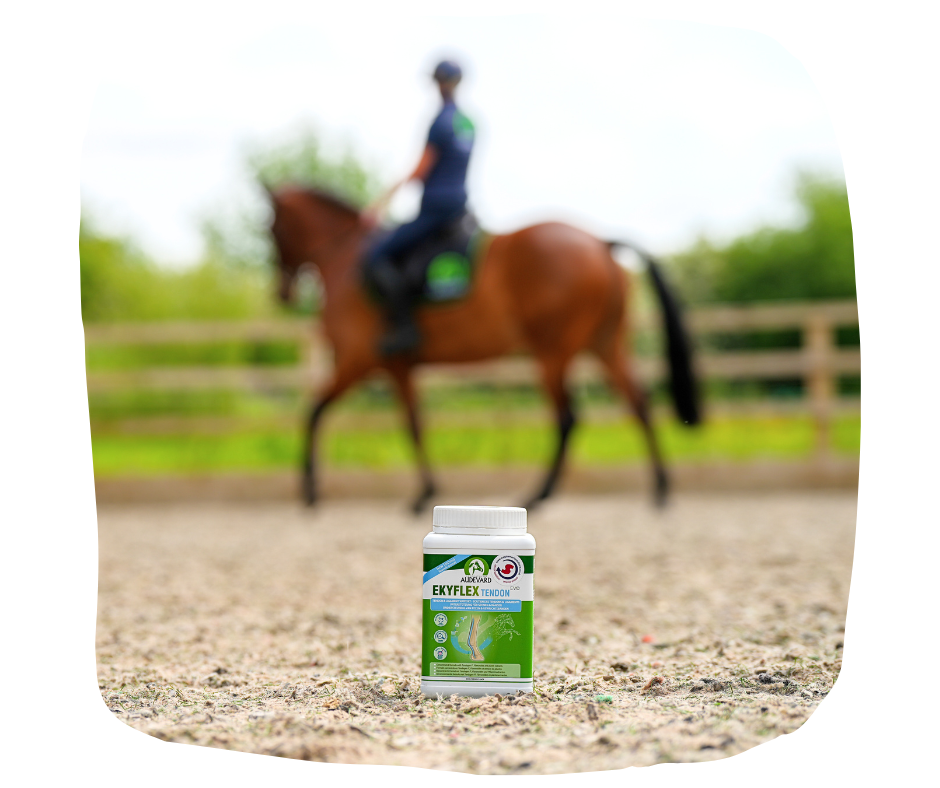Let's Talk Tendons
As horse owners we should familiarise ourselves with what a tendon is and why it is important to look after them. You should check your horse regularly, including feeling the legs, tendons and joints for any cuts, swelling, lumps or abnormalities, so that you can highlight any changes before any potential issues arise. A tendon injury, otherwise known as tendonitis, has the potential to end your horse's athletic career, although this isn't always the case, prevention is better than a cure.
What is a tendon?
A tendon is a strap of connective tissues which connects muscles to bones within the body. They are remarkably strong for soft tissue, this is due to their incredible anatomical structure and composition of many collagen fibers, all running in parallel orientations. Tendons are capable of exerting more energy than they receive, each stride the horse takes, think of the tendons like springs, the energy is stored as they contract and then released.
What causes tendonitis in horses?
There are many, varying factors that may lead to tendonitis in horses. The most common is fatigue of the tendon, often caused by fatigue of the muscle it is attached to. Collagen fibres within the tendon's make up become weakened and inflamed. Due to the nature of tendonitis, it is a self-aggravating condition, meaning once an injury has occurred, the more the horse moves or works in a repeated, prolonged or unusual motion, the worse the condition will get. Other reasons a horse may develop tendonitis could be due to an accident such as a fall, trip or slip, external injury such as a kick or improper shoeing may lead to unbalanced forces on the muscles and tendons. Alternatively horses with poor confirmation may be more susceptible to developing tendonitis, the horse's anatomy may lead to the loads and forces involved in day-to-day movement being poor or abnormal.

What are the levels of tendonitis?
Tendonitis in horses corresponds to a partial or total rupture of the affected tendon’s collagen fibres. According to the degree of rupture, there are four types of tendonitis:
Type 1 - A partial rupture with possible pain at the beginning of the horse's work, this disappears as the horse warms up.
Type 2 - A partial rupture with persistent pain during the horse's work, this may increase as the effort intensifies.
Type 3 - A partial rupture with permanent or intense pain, impending the horse's training.
Type 4 - A total rupture of the fibres, movement becomes impossible and surgical intervention may be required.
If your horse develops tendonitis you should consult your vet for advice and a treatment plan.
Preventing Tendonitis

There are some ways you can help to prevent tendonitis, or things to consider if you are buying a new horse and want to try and prevent problems down the line.
If you are in the market for a new horse, you should look for one with good conformation. The shape and structure of the horse will play a huge role in how much strain is placed on its joints and limbs. The best way to try and eliminate problems from occurring in the future is to consider the confirmation and look for anatomical elements that may contribute to lameness in the future.
Ensure your horse's feet are balanced. An experienced farrier will assess your horse's feet and confirmation so that they can shoe your horse correctly, suiting your horse's individual needs. This is the same for barefoot horses, their hooves need to be trimmed and balanced regularly to help prevent abnormal strain or loading.
Keep your horse fit. Regular exercise will help to keep your horse in shape and prevent obesity. Excess weight can lead to more strain on your horse's body, limbs and joints. Remember if your horse has been out of work, or in low level work, increase the workload gradually. If you overwork your horse by doing too much, too quickly this may lead to musculoskeletal injuries and strains. Always warm up and cool off your horse properly during exercise.
Consider the ground conditions. If you ride in an arena you should check it regularly for deep patches or un-level areas. Poor footing can increase the stress on your horse's tendons and lead to soft tissue injuries. Varying the terrains you ride on may also help. When you hack out on different terrains, the changes in surfacing can help to strengthen your horse's core and hind end, resulting in the potential to prevent future tendon injuries. With this in mind, take care on particularly uneven ground.
Feed a supplement to support tendons. Nutritional support can help to rejuvenate and repair the collagen fibres from general wear and tear. Supplements containing type 1 collagen can help to improve the elasticity and strength of collagen tissues, helping to reduce the likelihood of scar tissue. You can feed a supplement to support tendons when your horse is in work or during the recovery phase after a tendon injury. If your horse has a tendon injury you should always consult your vet for advice and treatment, however, feeding a supplement alongside may be beneficial for your horse.

- Understanding Equine Gastric Discomfort: How to Spot It and Help Your Horse Feel BetterAs horse owners, we know how important it is to keep our horses healthy and happy. But have you ever considered the role of gastric comfort in your horse's well-being? Just like humans, horses can suffer from gastric discomfort, and it’s something that often gets overlooked. With the modern demands of exercise, travel, and stabling, gastric stress in horses is more common than you might think. Understanding it, spotting the signs, and making a few adjustments can go a long way in helping your horse feel their best.
- Do you know your carrons from your coppers?The Importance of Carron Oil and Copper in a Horse's Diet When it comes to looking after our horses, as owners and carers, we all know how vital it is to ensure they receive the right nutrients for their health and well-being. While the basics like hay, grass, and water often take centre stage, it’s […]
- How flexible are your joints?How flexible are your joints? Do you know the factors that play a part in equine joint health and support?












